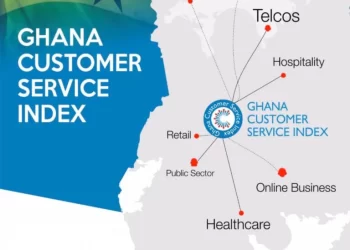The Governor of the Bank of Ghana (BoG), Dr Johnson P. Asiama, has called on the country’s banking sector to leverage recent macroeconomic stability to expand credit to the private sector, support productive enterprises, and drive sustainable economic growth.
Speaking at the Post-Monetary Policy Committee (MPC) meeting with heads of banks under the theme “Translating Macroeconomic Gains into Sustainable Banking Sector Growth,” Dr Asiama emphasised that the sector’s leadership, adaptability, and commitment had been pivotal in maintaining stability and fostering public trust.
According to him, the post-MPC engagements were not mere formalities but strategic platforms to align on policy direction, share perspectives, and convert monetary policy signals into actionable banking strategies.
“It is here that we translate the macroeconomic gains we secure at the policy table into outcomes that are reinforced and multiplied through your balance sheets, lending decisions, and innovation agendas,” he noted.
Macroeconomic gains and policy easing
Dr Asiama highlighted the country’s strong performance in the first quarter of 2025, with GDP expanding by 5.3 per cent and non-oil GDP by 6.8 per cent, driven largely by robust agricultural output and a buoyant services sector.
The Composite Index of Economic Activity (CIEA) recorded a year-on-year growth of 4.4 per cent in May, reflecting sustained momentum in consumption, trade, construction, and tourism.
Inflation, he said, had fallen to 12.1% in July—the lowest level in nearly four years—down from 13.7% in June.
This was supported by anchored inflation expectations, restored purchasing power, and improved business planning certainty. Fiscal discipline had also been commendable, with the budget deficit at 0.7% of GDP in the first half, well below the 1.8% target.
On the external front, gross international reserves reached US$11.1 billion, representing 4.8 months of import cover, while the cedi appreciated by over 40% against the US dollar in the year to date—a performance Dr. Asiama described as “unmatched in recent memory.”
Given these developments, the MPC reduced the policy rate by 300 basis points to 25%, signalling a cautious pivot from a defensive monetary stance towards one that supports growth.
Banking sector health and responsibility
Dr Asiama praised the banking sector for its resilience, noting that it remained well-capitalised, liquid, and profitable, with non-performing loan ratios declining.
This strength, he stressed, must now be matched with responsibility—especially in stimulating credit to productive areas of the economy while maintaining prudent risk management.
“The challenge,” he said, “is to grow lending while preserving the hard-earned stability that now defines our financial system.”
Regulatory and compliance agenda
The Governor announced a forthcoming package of regulatory measures aimed at enhancing sector resilience, transparency, and compliance with global standards.
Credit and risk governance
A new Credit Risk Management Directive aligned with Basel principles, alongside directives to address large exposures, strengthen bancassurance governance, and diversify loan portfolios.
Liquidity and capital resilience
The introduction of a Liquidity Risk Management Directive requiring banks to hold high-quality liquid assets to cover 30-day stress scenarios, coupled with stricter reserve requirement rules and improved stress testing.
Market conduct and foreign exchange compliance
Tightened enforcement of the Foreign Exchange Act, stricter guidelines for remittance services, and mandatory weekly inward remittance reporting by banks and payment service providers.
Additionally, the BoG will conduct a strategic business model review of banks, assessing the long-term sustainability of their strategies in light of technological disruption, climate challenges, and shifting customer needs.
From stability to inclusive growth
Dr Asiama underscored that Ghana’s current macroeconomic stability—marked by easing inflation, a strong currency, and healthy reserves—offered a unique opportunity to accelerate inclusive growth.
Banks, he urged, must channel more credit to SMEs, finance critical infrastructure, and embrace digital innovations to extend services to underserved communities.
“The stability we enjoy today was hard-won,” he concluded. “It is now our joint responsibility to ensure it is not only preserved but leveraged for sustainable and inclusive prosperity.”













